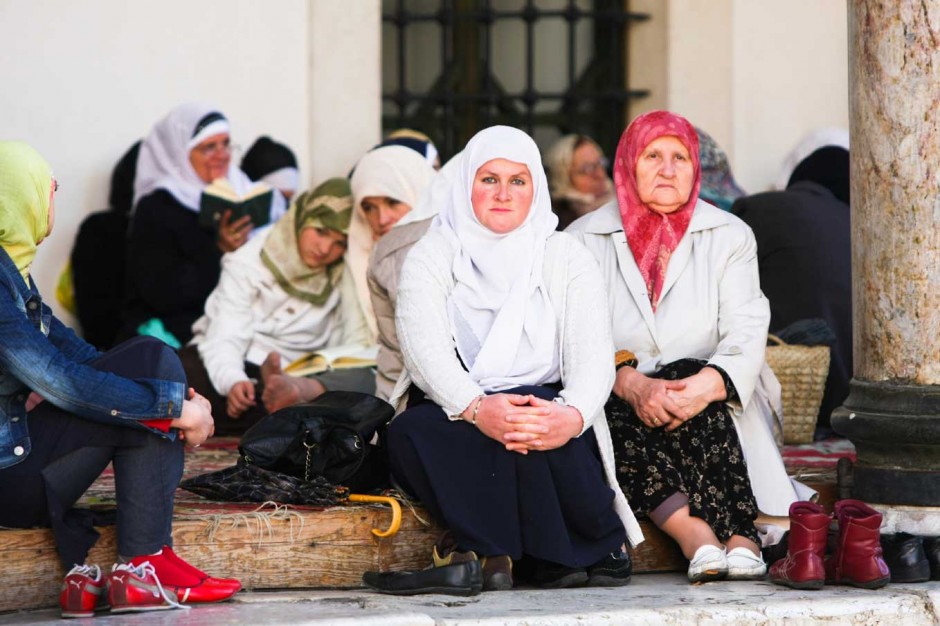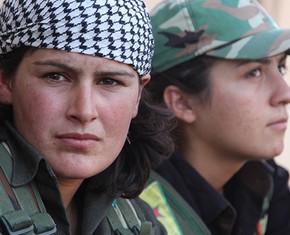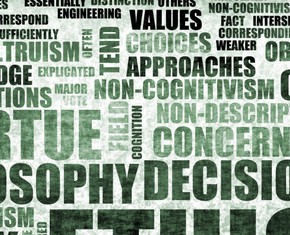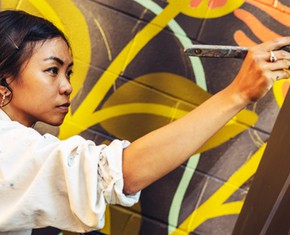The views expressed in our content reflect individual perspectives and do not represent the authoritative views of the Baha'i Faith.
If thine eyes be turned toward justice, choose then for thy neighbour that which thou choosest for thyself. – Tablets of Baha’u’llah, p. 64.
This concept of justice has a familiar ring to it—we immediately recognize it as one of the “Golden Rule” statements expressed in the world’s scriptures. To dismiss it because of its familiarity, would, however, be a mistake. After all, this is how Christ described the Golden Rule, when he was asked what the greatest commandment was in the law:
Thou shalt love the Lord thy God with all thy heart, and with all thy soul, and with all thy mind. This is the first and great commandment. And the second is like unto it, Thou shalt love thy neighbour as thyself. On these two commandments hang all the law and the prophets. – Mathew 22:37-40.
If we examine some of the principles and central concepts of the Baha’i Faith, we can find in each one a profound development and elucidation of the Golden Rule, which provides us with an immensely practical definition of justice as it applies in our day-to-day lives. The Most Great Peace spoken of in the Baha’i writings will not be a peace made of politics, and true justice is not a set of elaborate rules created by pragmatic government subcommittees. The peace we work for must exist between hearts, and the justice we seek must base itself on one rule, the Golden Rule.
Baha’u’llah’s writings say that justice is the “essence of all that We have revealed for thee.” If it is indeed the essence of the law and the teachings, we should be able to find it at the heart of each law and teaching, like a church in the center of a town.
For Women to Walk Without Fear
For Baha’is, the equality of men and women is a clearly established principle, founded on justice. We are all aware that:
The lack of spiritual values in society leads to a debasement of the attitudes which should govern the relationship between the sexes, with women being treated as no more than objects for sexual gratification and being denied the respect and courtesy to which all human beings are entitled.– from Violence and Sexual Abuse of Women and Children, A Statement of the Baha’i International Community, 1992.
This standard of equality promises us a world in which women travelling alone do not automatically risk their safety.
The hidden force of our assumptions about living as a woman became suddenly clear to me as I read Last Letters from Hav, a travelogue by Jan Morris, which gives an account of her time in a fictional city. Jan Morris has undergone a sex change, after being born and brought up male. As I read her book, I continually felt something nag at me. There was something about the writer’s attitude that didn’t feel quite right, something in her approach to life that didn’t sound entirely female—or like my assumptions about femininity, perhaps. I was shocked when I finally realized that, quite simply, she had no fear of traveling alone. No undercurrent of wariness slid beneath her words. She had grown up male, and lacked familiarity with the ingrained fear so many women feel. Another transgender writer who transitioned from female to male makes the same point, saying that gaining a male appearance is like “having a super power that allows me to do my daily travels without having to keep my guard up 100% of the time.” –The Feminist Hive Mind
The Baha’is are attempting to envision a world in which fear has ceased to be an unacknowledged part of our definition of femininity, and that vision rests on the Golden Rule. Baha’u’llah makes this connection clear when he says:
The friends of God must be adorned with the ornament of justice, equity, kindness and love. As they do not allow themselves to be the object of cruelty and transgression, in like manner they should not allow such tyranny to visit the handmaidens of God. – from a tablet to an individual Baha’i, quoted in the compilation Women, Equality and Development, p. 24.
In our time, in conflicts in Bosnia and Herzegovina to Peru to Rwanda, girls and women have been singled out for rape, with systematic rape used as a weapon of war in ethnic cleansing. When this happens, the victims are likely to be ostracized by their families and communities (see news piece from UNICEF on the subject) rather than protected and helped.

Moslem women sitting on the steps of a mosque in Sarajevo, Bosnia
All of us—men and women—have deeply-held cultural assumptions which tell us that the needs of particular types of people have more importance than those of others. Baha’u’llah challenges us to ignore those assumptions, and to accept that the Golden Rule must be practiced by all of us, all of the time. A sense of reciprocity must develop, even between those who regard themselves as completely unlike each other. The Baha’i writings insist that we are all human, and more alike than unlike, after all. Our shared humanity gives us enough in common that we can use our own pain to estimate that of another and our own concerns as the best clue to understanding the concerns of others, no matter how different they may appear from ourselves.
True justice, then, emerges from a profound act of the imagination.
It would be easy to think that in the liberal West little more needs to be done. But the deep-seated assumptions hidden in the human mind do not change readily. Take note of the anti-feminist rhetoric of today. The populist online ‘Urban Dictionary’ defines an anti-feminist as a “realist,” contrasting this view with that of ‘a feminist, who “lives in a fantasy land where men and women are exactly the same and should be treated as such.” This initial definition attracted three times more thumbs up than thumbs down from users. Even in the teens of a new century the problem refuses to go away.
The apparent revolution that has occurred in the garden of sexual relations has in fact been little more than a token replanting and re-routing of the watering system. We have tried to change the pronouns, made efforts to adjust the jargon, and the statutes as well as (on paper) the pay scales. We have, in many ways, begun to substantially improve the lives of women—but it is not enough. The level of change we still need reaches right down into the subsoil of the human heart.
You May Also Like
Comments

















This is the type of belief, also promoted by religious governments like Iran's, which leads to discrimination.
First of all, spirituality, in its most useful forms of self-reflection, is independent of religion, and precedes it thousands of years.
if you are unable to separate the two, you are a victim of childhood indoctrination.
also, the lack of religious values, and lack of indoctrination of such beliefs to unsuspecting children, is precisely the key to the ...gracious, civilized, compassionate, and peace-loving societies like in Scandinavia.
The opposite, where religious laws are practiced daily, and indoctrinated to innocent children, like in the Middle East, continue to suffered the bloody consequences of inheriting faith (which by the way, is a direct contradiction to the principle Baha'is proudly refere to as "independent investigation")
poetically beautiful Baha'i writings, even with best of intentions, are hardly enough to result in justice and equality, especially when the core of such writings (Aqdas) is yet another watered-down version of horrific teachings in Twelver Shia sect